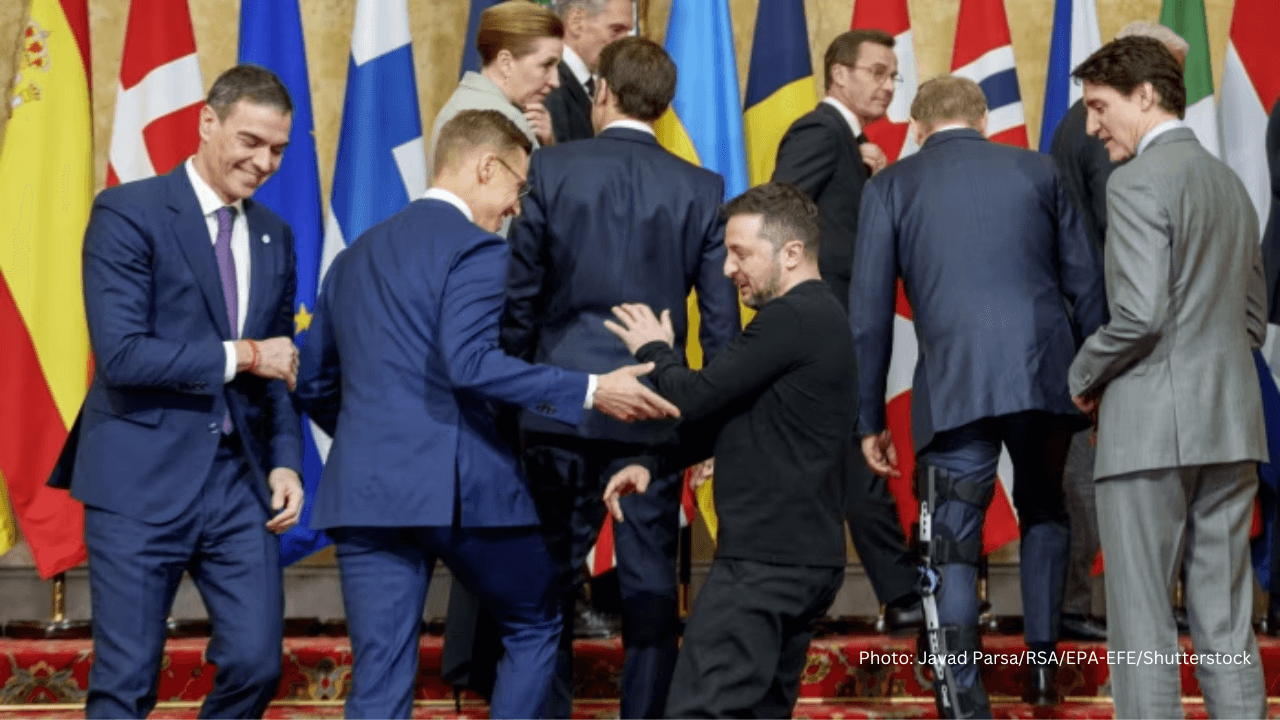The End of American Dependence? London Summit Signals Europe’s Strategic Awakening
Shamsul Arif Fahim | 10 March 2025
The London Summit of 2025, held on March 2 at Lancaster House, marked a critical geopolitical juncture described by British Prime Minister Keir Starmer as "at a crossroads in history." The summit came shortly after a difficult meeting between Ukrainian President Zelenskyy and U.S. President Donald Trump, which strained U.S.-Ukraine relations. Fearing a weak deal with Russia, British Prime Minister Keir Starmer warned Europe must act firmly to secure Ukraine’s sovereignty. After Convening this summit, Sir Keir Starmer proposed a four-point plan: first, keep military aid flowing and pressure on Russian’s military predominance; second, ensure any peace deal that fully protects Ukraine’s sovereignty and security; third, continue supplying Ukraine with arms even after the war ends; finally, create a ‘coalition of the willing’ to defend any peace deal, possibly involving military deployment.
However, leaders agreed that American support remains indispensably essential, even as Europe steps up its own leadership in the face of U.S. uncertainty. The summit highlighted a major shift: Europe can no longer rely completely on the U.S. for security. Following the summit, the European Commission announced a new "ReArm Europe" plan, aiming to raise up to €800 billion to boost European defences and support Ukraine’s resilience. Ideas include setting up a joint fund for weapons production and using private investments, creating a “war economy” model.
Britain also announced major military aid, including a £1.6 billion air-defence missile deal and a £2.2 billion loan backed by seized Russian assets. These actions blend geopolitics with political economy, using aid to both defend Ukraine and strengthen European industries. Beyond weapons, leaders stressed the importance of Ukraine’s economic future. The EU established a €50 billion Ukraine Facility to keep Ukraine’s government running and help rebuild its economy. However, they warned that Ukraine must avoid becoming permanently dependent on aid. Instead, Ukraine should aim for self-sufficiency and global economic integration. President Zelenskyy, for example, promoted Ukraine’s mineral resources to attract future investments, including a potential minerals trade deal with the U.S.
Geopolitically, the summit showed new alliances taking shape. Post-Brexit, Britain is leading efforts to strengthen European security alongside France and other countries. France even suggested deploying its nuclear forces to protect allies, showing Europe’s growing independence in defence matters. Meanwhile, Turkey’s participation showed how countries are carefully balancing between supporting Ukraine and maintaining ties with Russia.
Moreover, NATO Chief Mark Rutte, mentioned that “more European countries will ramp up defence spending.” He also emphasised the shared military hegemony with the U.S. in the world order and reiterated the need for “more of a fair balance.” Also, the summit sent a clear message: Europe and its allies will continue to support Ukraine both militarily and economically for as long as needed.
In conclusion, the London Summit not only reinforces Ukraine’s immediate geopolitical importance but symbolizes a broader shift from a global economy centered on free trade towards a future marked by strategic protectionism and economic nationalism, significantly influenced by America's shifting role and Europe's increasing drive for security and economic self-reliance.
Shamsul Arif Fahim is a Research Assistant at CGS
Views in this article are author’s own and do not necessarily reflect CGS policy.
